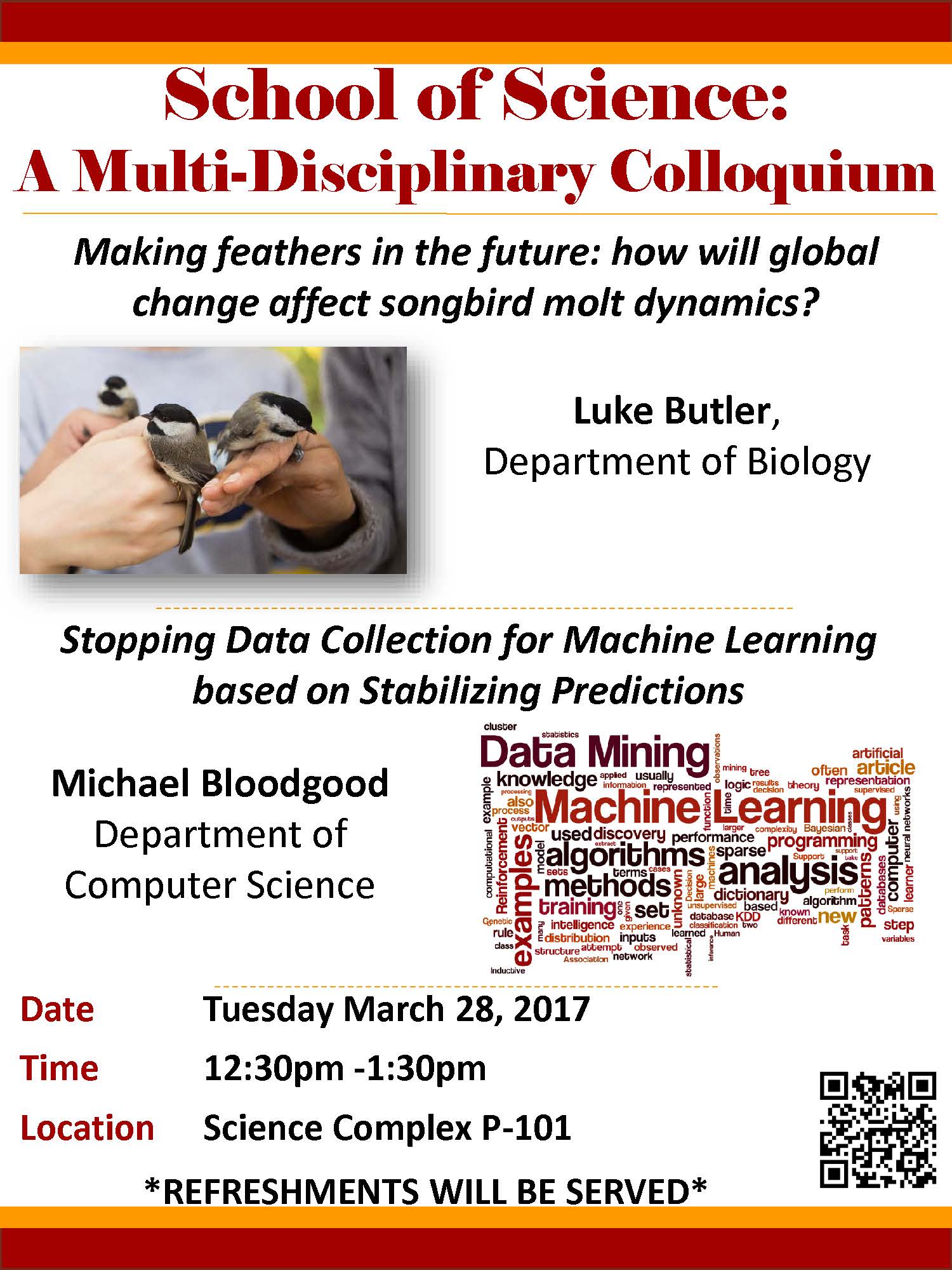Multi-Disciplinary Colloquium
March 28, 2017
12:30 – 1:30pm
SCP – 101
Dr. Luke Butler, Department of Biology, “Making feathers in the future: how will global change affect songbird molt dynamics?”
Abstract:
All birds undergo periodic feather molts in order to restore the numerous functions of the plumage. Birds tightly-control the timing and rate of molt in relation to environmental conditions, helping to minimize molt’s physiological and aerodynamic costs, and maximize the quality of the newly-produced feathers. In a time of rapid environmental change, we know little about how avian molt will be affected by ubiquitous environmental threats such as urbanization and global climate change. I will present the findings of a long-term field study of molt dynamics in a widely-distributed songbird, the Carolina Chickadee, focusing on effects of urbanization and record-breaking spring temperatures, and the potential molt-related costs of global change.
Dr. Michael Bloodgood, Department of Computer Science, “Stopping Data Collection for Machine Learning based on Stabilizing Predictions.”
Abstract:
The acquisition of annotated training data is a major bottleneck in the development of machine-learned systems. Active learning (also known as selective sampling) has become a widely used approach for potentially enabling machines to learn higher-performing models from smaller amounts of annotated training data. In order to realize the performance gains enabled by active learning, an effective method for determining when to stop the annotation process is critical. Stopping too early results in a lower-performing model and stopping too late results in wasted annotation effort. A survey of existing methods for stopping active learning reveals the needs for methods that are: more widely applicable, more aggressive in saving annotations, and more stable across changing datasets. A method for stopping active learning based on stabilizing predictions is presented that addresses these needs. The principles behind our method are explained and experimental results across a range of tasks show that the method outperforms previous methods, filling a need for a more aggressive stopping method and providing users with more control over stopping behavior. To give an idea of the results, the method was applied to 13 different datasets for Named Entity Recognition, Relation Extraction, and Text Classification tasks and a macro-average over all of the results showed that the method reduced training data requirements by 92 percent with zero loss of model performance. Theoretical analysis of the mathematical underpinnings of stopping based on stabilizing predictions will be sketched to help elucidate the inner workings of the method.

